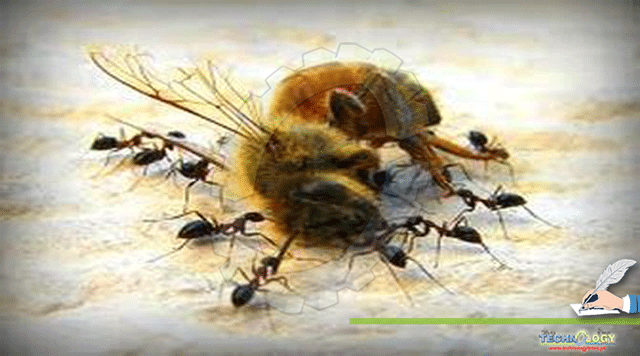Honey bees are critically important to agricultural production across the world, but due to environmental threats and global warming it has become as threatening as were never before. As per experts say honey production is declining day by day in Pakistan due to anthropogenic activities, carbon pollution and human-induced stressors.

By Rao M. Sajjad Sharif and Shahid Majeed
The changes in habitat and biodiversity, coupled with the increasing use of chemicals and pesticides, have led to a sharp decline in bee populations in the Hindu Kush Himalayan region. According to the Pakistan Beekeepers Association (PBA), there are 35,000 beekeeping farms in Pakistan, but only 10,500 of them were registered with the Pakistan Beekeepers Association (PBA) that meet its criteria.
UNDP has estimated that Pakistan loses over Rs. 6 Billion every year due to climatic problems. That’s much more than the Rs. 1 Billion lost each year to terrorism. After the 2014 Peshawar Military School Public School attack that killed 144 children, the Pakistani government restricted the influx of refugees, especially from Afghanistan. According to Ghafar a drop in immigration has had a dire impact on honey production in Pakistan. A lack of visa and work permits are restricting the imports of honey. “A proper work permit should be issued (the refugee’s honey trade) for the survival of the industry”. Consequently, honey prices have soared in Pakistan in recent years. Wild honey, usually available at between PKR 1,400 to 1,600 a kilo, is now selling for between PKR 2,200 to 2,600. Home farm honey prices used to range from PKR 800 to 1,200 per kilo but now they fetch between PKR 1,400 to 1,800 per kilo.
According to a 2016 report 20% of honey is lost every year due to untrained beekeepers and a rapid deforestation in this region, contributing to low production and ultimately the soaring prices in Pakistan. A scientist at the National Agriculture Research Centre (NARC) and Honey Bee Research Institute (HBRI) said that, despite producing prime quality honey in the world, Pakistan stands at 19th position worldwide in terms of production. Annually, Pakistan produces 300,000 metric tons of honey, whilst China is the largest exporter of honey in the world. The provincial government of Pakistan doing efforts to promote honey products and this industry by making queen bee sales tax-free.
After 2014, worsening environmental conditions killed bees and effected the honey production. An average Pakistani beehive produces 10 to 15 kilograms of honey per season. In comparison, Australian bees produce 25 to 30 kgs. Climate change, which has already affected Pakistan in the form of increasing floods, off-season rains, and severe temperatures and significantly threaten the honeybee business. The Hashoo-Foundation in Pakistan, which works in the Kashmir and Gilgit-Baltistan areas of Pakistan, confirms that honey production has declined up to 40% due to major changes in the environment in recent years. Mr. Kamaluddin, the project director, says that since 90% of plants and crops depend on insects to pollinate and reproduce, the drop in the number of bees also impacts agricultural production, as well as the production of honey.
In Pakistan, four species of honeybees that contribute to honey production, dispersal of seeds and crop pollination. There are three honey bee species (Apis florae, Apisdorsata and Apiscerana) which are indigenous and considered as the native species of Pakistan. The fourth species (Apis mellifera) migrated from Russia and Australia in 1979, improving the production of fruits and vegetables in selected areas of Pakistan. But now, experts say climate change and pesticide pollution is severely threatening beekeeping and honey production, one of the Pakistan’s most agricultural commodities. Unless authorities take action to protect bees and fight a warming climate, Pakistan’s agriculture will be severely threatened too.